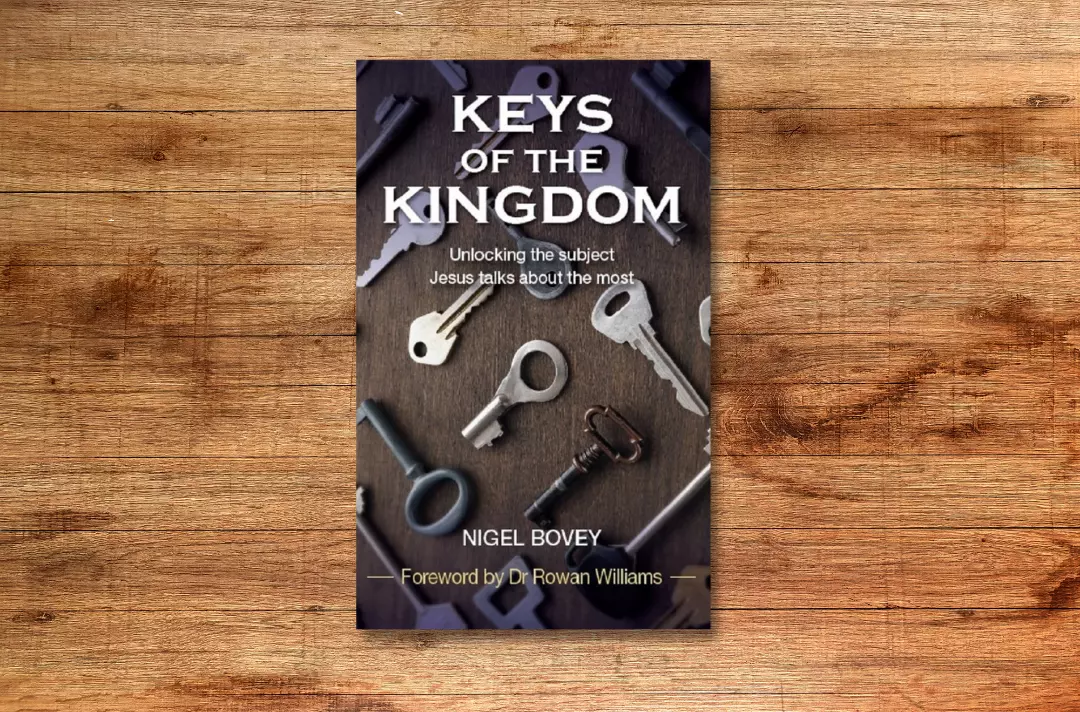21 August 2021
Browsing the Bible: 'For many Christians, the Bible is like an iceberg'
Emily Bright interviews Major Nigel Bovey

Emily Bright interviews Major Nigel Bovey about the books he's written and the books he loves.
What inspired you to write Browsing the Bible?
For 24 years I was on the staff of the War Cry, writing about the Bible in an obscure, less obvious way. My ministry over 40 years as an officer has always been about teaching what the Bible says – and during that time I recognised that for many Christians, let alone non-Christians, the Bible is like an iceberg. People don’t know 80 or 90 per cent of it.
What I wanted to do through Browsing the Bible was, in palatable, bite-sized chunks of about 350 words, to faithfully distil the essential message of each of those 66 books.

It’s for the reader who genuinely wants to know more but is put off by the length and scale of the Bible.
What are some of the overarching themes you came across?
I conclude that you cannot understand the New Testament and who Jesus is unless you have seen the context and landscape in the Old Testament.
You don’t need to have the full colours and all the details, as long as you have the impression of where the whole of the Old Testament leads. Without the Old Testament, the New Testament doesn’t make a lot of sense.
What do you hope readers will take away from this book?
The Bible is not about head knowledge. It’s not about being able to remember and quote verses.
The essential message of the Bible is about the heart.
The Bible speaks to us, and it doesn’t matter at what level we come to it.
Could you tell us a bit about Keys of the Kingdom, which is being released later this year?
Keys of the Kingdom grew out of studying and researching the Gospels when I was writing Browsing the Bible.
When you go through the Gospels, particularly Matthew, Mark and Luke, time and time again Jesus is talking about one subject: the Kingdom of Heaven or the Kingdom of God. You can’t escape it.
Jesus talks about the Kingdom more than he talks about love, forgiveness, faith and Hell. And of course, he does more than talk about it.
He lives the Kingdom, and the concept that he has come to bring the good news. Bringing good news is not only talking but doing.
So when he said the first shall be last and the last first, it was seen in the way that he treated people who were marginalised. Who’s the greatest in the Kingdom? It’s not the rich and the famous, it’s the little child.

And it’s not only a radical message about the Kingdom and its values, there is also a life-changing reality. Jesus can change our lives, if we want him to.
Which secular book has influenced you the most?
Swallows and Amazons by Arthur Ransome, which I came across when I was about 10 years old.
The book opened up for me this whole sense of children being allowed to have adventures without the authority of parents around. I read the whole series.
I guess that was foundational in my love of the outdoors. I now live on the river Exe, on the estuary.
If you could take one book to a desert island, apart from the Bible, what would it be?
I think I would juggle between three items.
First, I’m going to choose Wisden Cricketers’ Almanack. I was once a maths teacher and I could have hours of endless fun looking through statistics. Interestingly, Wisden tells us that Sir Arthur Conan Doyle, the creator of Sherlock Holmes, took two first-class wickets, and one of them was none other than the great master himself, WG Grace.
That then would be joined by a huge book of plain paper, so that I could write more novels.
I would also have a photo album of my family and friends, because if lockdown has taught us anything, it’s the importance of relationships.
Interview by

Emily Bright
Promotions and Marketing Co-ordinator, Publishing
If the player doesn't work in your browser, you can listen via: